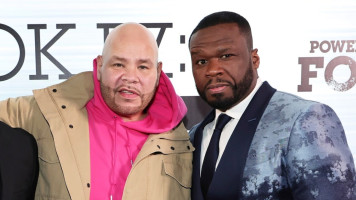The lawsuit hinges on an interpretation of a work-for-hire deal that entitled Jacques Levy to 35% of all income earned by the compositions.
The widow of songwriter and theatre director Jacques Levy, who co-wrote seven songs on Bob Dylan’s 1976 album Desire, filed a $7.25 million lawsuit over Dylan’s blockbuster sale of his song catalog to Universal Music Group in December, according to court records obtained by Billboard. The catch is, Levy never owned any of the songs sold.
In the complaint, which was filed Wednesday (Jan. 20) in New York Supreme Court, Claudia Levy accuses Dylan and Universal of failing to pay Levy’s estate its rightful portion of the proceeds from the catalog sale for the songs he co-wrote with Dylan. She says this breaches a 1975 deal that gave Levy 35% “of any and all income earned by the compositions,” claiming this should include 35% of those songs worth as part of the Universal sale.
Levy -- whose publishing company Jackelope is listed as a co-plaintiff -- co-wrote seven of Desire’s nine songs with Dylan, including “Hurricane,” “Isis” and “Mozambique.” He died in 2004.
Dylan seldom worked with other writers and Levy's co-writing on Desire is arguably his most famous songwriting collaboration.
Whereas with typical co-writing arrangements, Levy would be entitled to an ownership share of the songs, his agreement with Dylan was instead made as a work-for-hire that gave Dylan full ownership. Only it was not a typical work-for-hire either. Instead, the deal entitled Levy and his publisher to 35% the songs’ revenue, paid by Dylan or directly from a performance rights organization. (The contract states ASCAP and BMI, but Dylan has been signed with SESAC since 1995.)
Per the lawsuit, Dylan was obligated to pay Levy “Thirty-five (35%) percent of any and all income earned by the Compositions and actually received by [the Dylan Defendants] from mechanical rights, electrical transcriptions, reproducing rights, motion picture synchronization and television rights, and all other rights therein” -- which Claudia Levy and her attorney Richard Golub say should include a share of the Universal song catalog sale.
That claim will be tested, though. Levy will presumably continue to be entitled to that 35% of income derived from use of the songs (now to be paid by Universal), but since he never held ownership over the songs should he be entitled to profit from the songs’ sale? Dylan and his team will likely argue no, saying Levy was hired to help write the songs and then promised a cut of their royalties -- and their royalties alone.
“The term ‘income,’ as set forth in...the Agreement, is unrestricted and unambiguous,” states the complaint, which was filed by Levy’s attorney Richard Golub. It adds, “The Agreement’s terms make clear that the Agreement is highly atypical of a work-for-hire agreement, bestowing on Plaintiffs considerable significant material rights and material benefits that are not customarily granted to employees-for-hire and that the label work-for-hire is, in this instance, a misnomer.”
Also included in the suit is an allegation that Dylan and UMG refused Claudia Levy’s request for Levy’s “rightful share” of the catalog sale in mid-December, roughly a week after the acquisition was announced.
In an attempt to establish that Levy’s contributions have “been diminished and hidden by the Dylan Defendants” since they first collaborated, the complaint sets up a timeline of grievances. These include an allegation that Levy was never credited on posters or in programs for Dylan’s 1975 tour the Rolling Thunder Revue despite having served as the show’s director. It also notes that Levy was never acknowledged in the 2019 documentary Rolling Thunder Revue: A Bob Dylan Story by Martin Scorsese -- a complaint laid out previously by Levy’s son, Julien Levy, in a 2019 article for Vice.
“This lawsuit is a sad attempt to unfairly profit off of the recent catalog sale,” remarked Dylan’s lawyer Orin Snyder in a statement emailed to Billboard. “The plaintiffs have been paid everything they are owed. We are confident that we will prevail. And when we do, we will hold the plaintiffs and their counsel responsible for bringing this meritless case."
Universal Music Group had not responded to Billboard’s request for comment at the time of publishing.
Claudia Levy is asking for $7.25 million, including a total of $5.25 million on two breach of contract counts and one count of “tortious interference with contract” (all based on a valuation of $300 million for the catalog sale), and $2 million in punitive damages “in order to deter similar conduct from happening in the future and to punish the Dylan Defendants for their malfeasance and contractual breaches.”
The sale of Dylan’s catalog, which was announced on Dec. 7, has been estimated as the largest ever for a single songwriter.





